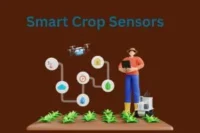The Impact of Agricultural Technology in Rural Canada
Published: 12 Apr 2025

Saskatchewan, a province in central Canada known for its vast agricultural lands and temperate climate.
- Challenges:
- Harsh winters and short growing seasons.
- Need for precise water and nutrient management due to diverse soil types.
- Increasing pressure from global climate change affecting crop consistency.
- Impact on farmers like Thomas Jenkins:
- Thomas, a third-generation farmer, faced fluctuating yields and market instability.
- Rising costs of fuel, fertilizer, and water management made farming financially challenging.
- The need to sustain long-term soil health while maintaining profitability was becoming difficult.
So, guys, without wasting time, let’s jump into the article to learn the Impact of Agricultural Technology in Rural Canada
Introduction of Agricultural Technology
- Initiative: A partnership between local farming organizations and agri-tech startups brought innovative solutions to Saskatchewan’s farming sector.
- Goal: Improve crop yields, optimize resource usage, and enhance farm sustainability using cutting-edge technology.
- Technology introduced:
- Autonomous tractors for more efficient fieldwork.
- Drones for aerial crop monitoring and pest detection.
- Precision farming tools to manage irrigation, soil health, and fertilizers using real-time data.
- Training provided:
- Workshops on using drone imagery to assess crop health.
- Education on data-driven decision-making tools for better farm management.
- Support for integrating new equipment into existing operations.
Thomas’s Transformation
Thomas was cautious about implementing high-tech solutions, worried about the upfront costs and their potential impact on his traditional farming practices.
- Adoption:
- After initial trials, Thomas integrated autonomous tractors and drones into his routine.
- Precision tools helped him track soil moisture, pesticide levels, and nutrient distribution more accurately.
- Immediate changes:
- Reduced labor costs by automating fieldwork with autonomous tractors.
- Enhanced crop monitoring through drone technology, resulting in healthier, more uniform crops.
- Water and fertilizer usage optimized by precision tools, leading to a 25% reduction in input costs.

Results and Impact
- For Thomas:
- Increased crop yields by 20%, with reduced overhead costs from precision farming.
- Enhanced long-term sustainability of his farm by reducing water and chemical usage.
- Improved financial stability, allowing him to expand and hire additional workers.
- For the community:
- Over 50 local farmers in the region were trained in using agri-tech tools.
- Within 12 months:
- Crop yields increased by 15% across the community.
- Reduced environmental impact due to optimized resource use.
- Increased local collaboration as farmers shared knowledge and technology.
Wider Implications of Agricultural Technology
- Why it matters:
- In developed countries like Canada, agriculture is a major economic sector, contributing significantly to GDP and exports.
- Precision farming and agri-tech innovations are key to maintaining food security, environmental sustainability, and economic growth.
- Role of agri-tech:
- Autonomous vehicles reduce labor costs and increase operational efficiency.
- Drones and remote sensors offer real-time crop monitoring, helping detect pests and diseases early.
- Data analytics and precision tools allow for tailored irrigation and fertilizer schedules, reducing waste and environmental harm.
- Success factors:
- Technologies designed for large-scale operations with high levels of automation.
- Continuous support and training provided to farmers to ease the transition to new methods.
- Collaboration between tech startups, government agencies, and farmers for effective integration.
References
This section provides key sources and supporting materials that highlight the role and impact of agricultural technology in Canada. The references include government reports, academic studies, and industry insights relevant to rural farming advancements.
Here is the Online source regarding The Impact of Agricultural Technology in Rural Canada
Author Name
Crina Viju-Miljusevic
Farm Size, Technology Adoption and Agricultural Trade Reform: Evidence from Canada

- Be Respectful
- Stay Relevant
- Stay Positive
- True Feedback
- Encourage Discussion
- Avoid Spamming
- No Fake News
- Don't Copy-Paste
- No Personal Attacks

- Be Respectful
- Stay Relevant
- Stay Positive
- True Feedback
- Encourage Discussion
- Avoid Spamming
- No Fake News
- Don't Copy-Paste
- No Personal Attacks





